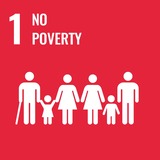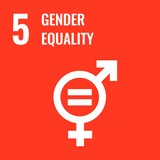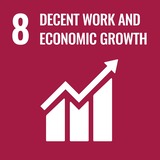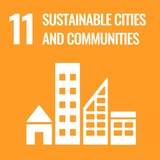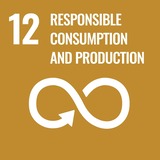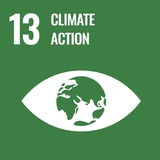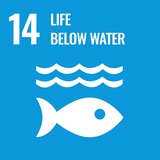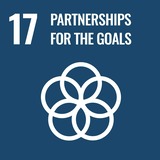vRecycle protects our oceans from plastic waste
Goa, India
250 tonnes / year
Our story
How it began
CEO Clinton spent his childhood mostly outdoors in the village of Cuncolim in Goa, India. With no television or video games, he was in touch with nature almost all day. It was his responsibility to get rid of the day’s generated garbage into the nearby bin, but like most villages in Goa, there weren't any. This meant that most people burnt their waste or simply threw it into a nearby river or field. For Clinton, this was not an option, so he began to look for alternatives.

Learning from the experts
While in school, Clinton talked to waste pickers and street recyclers and learned about what they accepted. It was quite an easy task once he knew what they took. He also earned some pocket money from the recyclables he sold them. Then later, in 1999, the CEO to be attended a composting workshop organized by the Goa Foundation. He immediately started composting and within three months was convinced that he was onto something. Even more encouraging was that the daily bag of waste that had to be thrown away now took a week to fill up. Over the years, Clinton learned about even more disposal systems for the hard to recycle waste. 18 years later, he is proud to say that he no longer generates any waste that he must throw away.

The Swedish connection
In 2000, Clinton met some young Swedish students working on environmental awareness in Benaulim. It did not take too long for them to become friends and in 2003, he was invited to Sweden to learn how waste was managed there. Besides taking in the beauty and friendliness of the country, he also visited several waste management sites. When Clinton returned, little did he know that he would be making another seven more visits over the next six years! In all his visits, he took back a little more information on Swedish waste practices. When he got back to Goa, he used this info to create a hybrid model that looks like the Swedish system but runs with Goan style.

Sharing is caring
The most important aspect of waste management is separating waste at the source. This is the main problem of the Goan waste: It's always mixed. There is very little that you can do with mixed waste. To encourage people to separate, Clinton collaborated with his friend Patricia Pinto who taught him an easy and low-cost way to compost food waste. Clinton designed signage that was easy to read and made recycling bins look attractive enough to put them right next to your home entrance. Throughout the entire journey, he shared my findings as well as my designs. All his creations continue to be copylefted (as in free for sharing in non-commercial situations). The second most important learning was that people need to be educated on proper waste disposal techniques. Clinton spends a lot of time talking to people about their waste and educating them. The third learning was that not everybody has the time or interest to manage their own waste, and so in 2009, he started a service company called vRecycle to meet this need.

The process
"Often looked down upon as low caste, or dirty or un-educated, waste workers working with vRecycle, now realize their worth."
vRecycle
Clinton Vaz • CEOMaximise impact
At vRecycle, we often change people's mindset towards their outlook on waste. We have always tried to improve the way we work. Having learned the intricacies of manually sorting waste from waste pickers themselves, we've taken the skills of the waste pickers, enhanced the sorting model with a better working environment, aesthetics, signage, color coding to simplify the waste treatment methodology. We have put a strong emphasis on decentralized waste treatment, avoiding multiple handling of waste, and bringing down the carbon footprint of the recovered recyclables by diverting it to recyclers around us rather than shipping it all to faraway destinations. In addition to this, we can use these efficiency gains to offer our services at a very affordable price, allowing us to work with a wide spectrum of clients. Using technology like GPS tracking and QR codes, we are now offering more transparency to our waste collection, treatment, and disposal model.
Empower local communities
Often looked down upon as low caste, or dirty or un-educated, waste workers working with vRecycle, now realize their worth. 'Everybody around us seems to make waste, but it's always us cleaning up the mess. They think we are dirty, but I know it's the other way around!' says Suneeta, one of our outspoken female sorters. At vRecycle, work is fairly distributed and so, as should always be, women and men are paid equal wages. Staff wanting to make more money are often allowed to take on more responsibilities and learn new skills, thereby helping lead a better life back home while upgrading the level of waste treatment vRecycle now offers.
Reduce & recover
During the early days of the pandemic, while the number of clients stayed the same, the waste we collected from them only seemed to grow. This keeps reminding us that our real focus on our efforts to manage waste should really be to reduce waste rather than just recycle it. We've stepped up our awareness programs to include subjects like consumerism and zero waste. While we find new ways to help people reduce waste, we have been on a steady target to recycle all the waste we pick up. Today, from the 100-120 tonnes of waste we process each month, less than 1% of the processed waste goes to landfills. We feel pretty satisfied that we are the most essential partner to over 25,000 homes that effectively manage their waste through us.
Do no harm
Managing waste does not just mean making it disappear. Often local businesses and villagers resort to dumping it into the sea, rivers, or roadsides and waste is often burnt in the backyards with the thought process that this solves the disposal problem. Besides organizing community cleanup drives with an emphasis on raising awareness to reduce waste dumping, we educate people on the harmful effects of marine pollution, the carcinogens from burning waste in the open, and the leachate seeping into the groundwater from large roadside dumps. Through our network of recyclers and disposal agencies, we have safe destinations for almost all the waste we pick up, including hazardous waste such as e-waste, diapers, and sanitary waste. As for items that don't have a solution, we simply store it until a proper disposal system is eventually set up. At vRecycle, we don't dump or burn any waste.
Set high standards
vRecycle's waste management model is designed to involve the local community when managing their own waste. We have multiple collection systems to suit all needs, and aesthetically pleasing waste treatment sites, that educate the public as well as manage waste. We are able to convince all our waste generators that their waste is a resource. Having decentralized compost systems ensures that food waste is turned to compost and then used in the gardens around the composter. Dry waste is sorted and diverted to recycling and the rejects get diverted to energy recovery leaving very little behind for disposal. Our MRF, though small, runs very efficiently processing little over 3,500 kgs of waste each day. Our model is designed to be replicated very easily in developing areas as it is low cost, manpower-intensive, and high impact.
FAQs
CleanHub empowers companies to take immediate responsibility for their plastic footprints. We connect ocean-loving brands with local communities, and facilitate the collection and safe processing of non-recyclable plastic. We understand the importance of proving impact, so we’ve built track & trace technology to provide evidence of how much plastic is collected, and where it ends up after we take care of it.
We choose recovery methods with the lowest environmental impact possible, and use our market position to enforce better working conditions for local workers.
80% of the plastic waste that ends up in the oceans is so-called flexible packaging or multilayer packaging, like chip packets, sauce sachets, etc. This material is either impossible to recycle or there is no demand from the market for the products (unlike water bottles which are commonly collected as they can be recycled, and so have ‘value’). Plastic that can’t be recycled is openly burned in small backyard fires or in landfills, or it is carried away into nature by the monsoon or strong winds. While we do collect all plastics, we focus on non-recyclable plastic to maximize our impact.
In order to stop ocean bound plastic, we need to significantly increase plastic recovery rates in high leakage locations. To achieve that, we empower communities around the world to cope with their own plastic waste, create incentives, develop waste management standards and foster local entrepreneurship. In our network of recovery endpoints we provide critical off-take agreements to safely treat plastic waste.
Plastic pollution is a global problem that affects us all. CleanHub is building a global network of local Collection Hubs in high impact locations to facilitate the collection and safe processing of non-recyclable plastic. We operate primarily in South (East) Asia which is the gateway for more than 80% of all plastic that enters our oceans. With your contribution we can reduce the mismanagement of plastic waste in these regions to eventually stop this environmental crisis.
Recyclable goods are sold for local recycling. Non-recyclables are sent for co-processing.
Co-processing refers to the simultaneous recycling of mineral materials and recovery of energy in the process of cement manufacturing and achieves a superior environmental performance as compared to landfill and incineration. For co-processing recovery we partner with Geocycle.
To learn more, read our blog - What happens to the collected waste
Plastic neutrality means that for every amount of plastic created, an equal amount of plastic waste is retrieved from the environment to be appropriately disposed of - either recycled or repurposed.
We work with brands to calculate their plastic footprint and recover the equivalent amount from the environment in high leakage countries, such as Indonesia or India. Some brands want to go further and recover more plastic than they emit, earning them Plastic Neutral + status. . Every contribution directly prevents plastic from entering our oceans and supports the development of local waste management infrastructure.
To stop plastic from entering the environment, we need to get to a point where the material is collected as close to the consumer as possible, and intercepted before it can reach the ocean. The majority of our plastic efforts are door-to-door collection or other smart ways to aggregate waste in one point. We also finance projects with passive technologies that catch plastic in rivers. The smallest fraction of plastic stems from beach cleanups or is directly sourced from the ocean.
Recovering plastic from the environment involves three distinct operations. Firstly the collection of the plastic, secondly the sorting of plastic into its unique types and thirdly the safe and final treatment. We digitize the recovery of ocean bound plastic from start to finish.Our Hubs use our technology to track the full collection process, which means we can verify every piece of plastic that is collected and what happens to it after we take care of it.
Watch this video to see how it works
We choose the best recovery method according to three steps. Firstly, available recovery options are ranked according to the waste management hierarchy, i.e. Recycling > Energy Recovery > Landfill. Secondly, we rank all options on the basis of life-cycle assessment results that determine related Co2 emissions. Thirdly, all recovery options are ranked by their level of technology and safety. CleanHub only works with recovery companies that operate according to the European code of conduct.
Sign up to our newsletter
Subscribe to receive monthly insights. Plus, we’ll collect 1kg of plastic on your behalf.
Our accreditation
We're the first plastic credit system verified by TÜV SÜD


